ai generated video, trending ai shorts, sora ai, midjourney video, ai shorts, artificial intelligence, openai content, tech shorts, …
Sure! Here’s a comprehensive article on AI-generated studios, discussing their impact, technology, and creative potential.
AI-Generated Studios: The Future of Digital Creativity
Introduction
In an era where artificial intelligence (AI) is transforming industries, the creative landscape is no exception. AI-generated studios are becoming increasingly prevalent, allowing artists, musicians, and creators to explore new dimensions of creativity. This article delves into the technology behind AI-generated studios, their applications, and the evolving relationship between human creators and AI.
The Rise of AI in Creative Industries
Background
The advent of AI has revolutionized various sectors, including healthcare, finance, and transportation. However, the creative arts have also embraced AI technologies, leading to innovative solutions that were previously unimaginable. AI tools allow creators to amplify their ideas, resulting in uniquely captivating artworks, music, and performances.
Defining AI-Generated Studios
AI-generated studios refer to digital spaces where artificial intelligence algorithms assist in the creation and production of artistic works. These studios utilize machine learning models capable of generating images, music, and even scripts, thereby redefining what it means to be a creator.
Popular AI Tools
Several cutting-edge AI tools have emerged to facilitate creativity:
-
OpenAI’s DALL-E: This image-generating AI can create stunning visuals based on textual prompts, enabling artists to visualize their ideas.
-
Midjourney: An AI tool focused on generating images with a distinct artistic style, allowing for greater customization and creative expression.
-
Runway ML: A platform that integrates AI into video editing, offering tools for background removal, facial recognition, and more.
- AIVA: An AI music composer that creates original compositions based on user preferences.
How AI is Transforming the Creative Process
Enhanced Creativity
AI acts as a collaborator rather than a replacement for human artists. By providing suggestions, generating drafts, and experimenting with novel ideas, AI tools push creators to explore concepts they may not have considered otherwise. The AI-generated studio fosters a collaborative atmosphere where human intuition and AI’s computational power coexist.
Streamlining Workflows
Traditional creative processes can be time-consuming and labor-intensive. AI-generated studios streamline workflows by automating routine tasks and offering quick iterations. For example, musicians can generate unique melodies in minutes, allowing them to focus on refining their sound rather than starting from scratch.
Democratizing Creativity
AI tools lower the barrier to entry for aspiring artists. Individuals without formal training in art or music can create compelling works using user-friendly interfaces. As a result, diverse voices and perspectives emerge, enriching the cultural tapestry of art.
Ethical Considerations
While the integration of AI into creative fields has many benefits, it also raises ethical questions. One major concern is authorship. If an AI program generates a piece of art or music, who owns the rights? This dilemma continues to prompt debate in the legal and artistic communities.
Copyright Issues
As AI-generated content becomes more commonplace, copyright laws struggle to keep pace. Current regulations do not clearly define authorship when it comes to AI creations. Artists must navigate the complexities of intellectual property, leading to uncertainty regarding ownership and usage rights.
The Risks of Homogeneity
Another concern is the potential for homogenization of art. With AI tools trained on existing datasets, there’s a risk of producing similar styles and themes. Artists must remain vigilant to ensure their individual voices are not drowned out in the noise of algorithmically generated content.
Case Studies
Music Industry: AI Composers
AIVA, an AI composer, is revolutionizing the music industry. Its ability to create original compositions in various styles has attracted attention from commercial sectors, video game developers, and filmmakers. By analyzing existing works, AIVA understands patterns and nuances, allowing it to compose original pieces that are harmonically and melodically sound. Musicians can use these compositions as inspiration or foundation, thus blending AI with traditional artistry.
Visual Arts: AI-Generated Imagery
Tools such as DALL-E and Midjourney have democratized digital art creation. Artists like Refik Anadol have harnessed these tools to create stunning installations that merge art and technology. By inputting prompts into these AI systems, Anadol generates intricate visuals that challenge our perceptions of creativity and authorship.
Film and Animation: Streamlining Production
AI-generated studios are also impacting the film industry. Tools like Runway ML allow filmmakers to automate tasks such as rotoscoping and background removal, saving time and resources. Additionally, AI can assist in scriptwriting and character development, pushing the boundaries of storytelling.
The Future of AI-Generated Studios
Evolving Technology
The technology behind AI-generated studios is continually advancing. As machine learning models become more sophisticated, we can expect even richer creative outputs. With the development of generative adversarial networks (GANs) and other advanced algorithms, the potential for AI to generate high-quality work is expanding.
Collaborative Art Forms
Future studios will likely evolve into collaborative spaces where human creators and AI systems work side by side. This synergy will foster the creation of hybrid art forms that blend traditional techniques with AI-generated elements, leading to entirely new genres and styles.
AI as a Tool for Personalization
As AI becomes more personalized, studios will increasingly cater to individual creators’ needs. Customizable AI tools will offer artists tailored suggestions based on their unique styles, allowing for a highly individualized creative process.
Conclusion
AI-generated studios represent a significant shift in the creative landscape. As technology advances, these digital spaces will continue to inspire and empower artists, enhancing creativity while raising important ethical questions. The collaboration between human intuition and AI’s computational prowess can lead to groundbreaking artistic expressions that push the boundaries of imagination.
As we navigate this new terrain, it is vital to embrace the opportunities AI presents while addressing the challenges it poses. The future of creativity may be intertwined with AI, marking the beginning of a new era in the artistic realm.
References
[1] Modern applications of AI in the creative industry (source_link)While this article provides a thorough overview of AI-generated studios, I’d be happy to expand further or focus on specific areas if needed!
Click here and see the Source














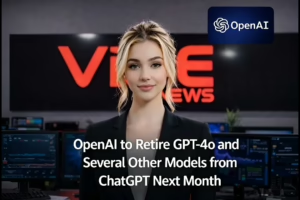
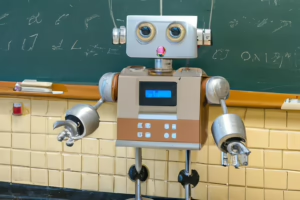
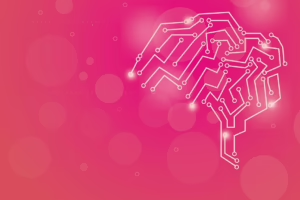
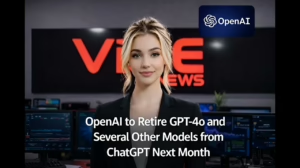
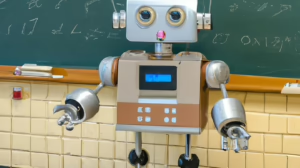
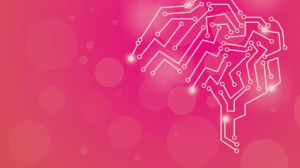




Add Comment